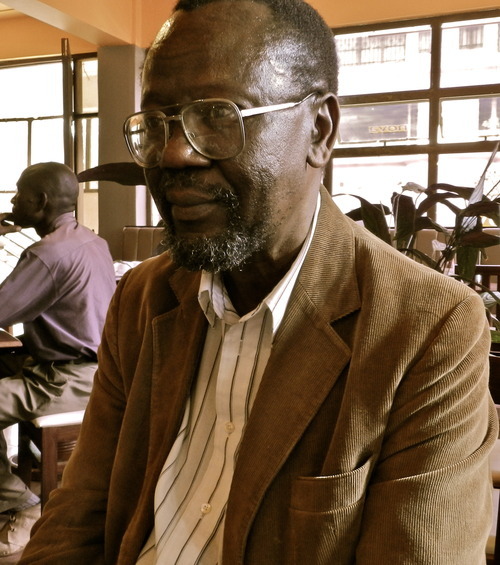Points from Japhet Otike, Senior Librarian, Lecturer at Moi University

Today I had the immense pleasure of meeting Japhet Otike, a renown Librarian and Lecturer at Moi University who has published extensively on Libraries and Librarianship in Kenya. One particular report of his concerning the role libraries play to promote reading in Kenya has been tremendously valuable to our model. Below are some of the key points he shared with me about libraries as they relate to the Kenyan curriculum and government school perspective.
There is no National Policy on libraries – predominantly because there is no body to represent libraries at the ministerial level. “Librarians have been talking about having national library standards for a long time, but we have not been able to, because we do not have librarian representatives in Ministry of Education to push for this…We do not have a strong voice” – Mr. Otike.
Because there is no representative of libraries in government, it means that all decisions by the government relating to libraries, or lack thereof, are being done by people who are not librarians, and do not understand the needs and nuances that are required.
There is no guideline for the Principals to follow to execute on the responsibility that now falls on their shoulders (this is where we see our model having tremendous value). They do not have, or are not aware of basic things such as titles, programs, activities, or even data for them to see to understand the importance of providing books to the students.
There is no government sanctioned governing body on Librarians. Japhet explained that anyone who works in a library can call themselves a librarian. Thus, you have people serving that ‘role’, that actually don’t know how to curate collections or perform other duties associated with librarians but usually the skills of which are acquired through training.
There is a reliance on foreign donors which presents its own problems:
- Books from donors tend to be a grab bag, as opposed to being selected and curated carefully “oh these books, we don’t need them, but Africa might need them” – Japhet typifying a book drive.
- This creates an environment where libraries in African tend to become a dumping ground for “unwanted materials, and any donated materials”
- Schools are very likely to put them on a shelf and display them prominently, but they will not be read
- In most school libraries, the materials are not relevant. Because of this, the kids don’t read them, which means they are not extracting any kind of value out of their library or its contents, which means of course, they don’t value libraries.
Given the current environment and government structure, it is up to the authorities (principal, Board of Governors) at each individual school to set the standard and cite the priorities for the school library. Thus, “If the authorities have an interest in the library, the staff will work hard to support and use it. If the authorities don’t, then even those working in the library will have no interest…The bottom line, is that it comes from the school authorities.” – Japhet Otike.
The Kenyan Curriculum without learning resources does not produce strong candidates. They (the teachers) don’t pass the kids through leisure, analytical reading. They pass them through grilling – which creates a perceived academic approach where libraries are not important to passing exams.
For the Principal, the better the kids do on exams, the happier they are (as the schools ranking increases). As such, there is less emphasis on things outside perceived to be outside the curriculum (leisure reading). This will have a tremendous effect n the library (if there is one) in that it will be tailored towards the curriculum.